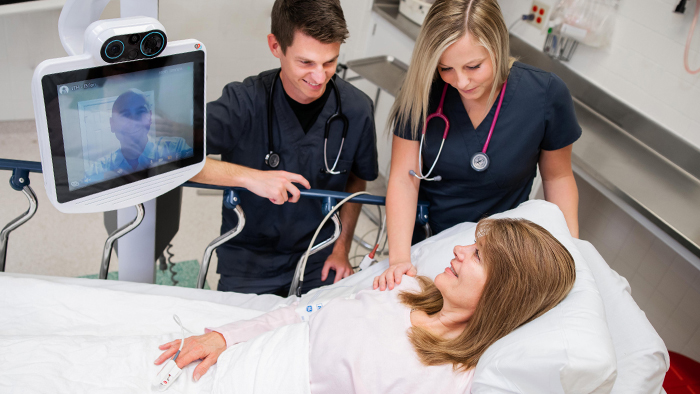Early, real-time access to advanced neurology specialists makes the most of stroke's most critical time – when lives are saved and brain function can be preserved. This telemedicine technology means if you’re having a stroke, you have immediate access to leading neurologists right here in Highland at SJH. Real-time web-based video and audio equipment lets specialists evaluate and interact directly with you and the emergency department physician remotely.
When a potential stroke patient arrives at the SJH Emergency Department, the staff alerts an on-call expert and shares the patient's condition, along with brain and x-ray scans. A mobile "robot" unit – nicknamed "STEVE" (Stroke Telemedicine Emergency Video Exam) – is brought to the patient's bedside to initiate an immediate consultation through videoconferencing. The neurologist will have the ability to interact face-to-face with the patient and family, ask the patient to perform examination tasks and provide an expert recommendation to the SJH Emergency Department physician for the appropriate course of treatment.
The telemedicine program helps us deliver:
- Immediate access to neurology specialists
- Advanced stroke treatment and intervention during the critical window
- Face-to-face interaction between you and specialists
- World-class technology and neurology resources direct to the hospital



